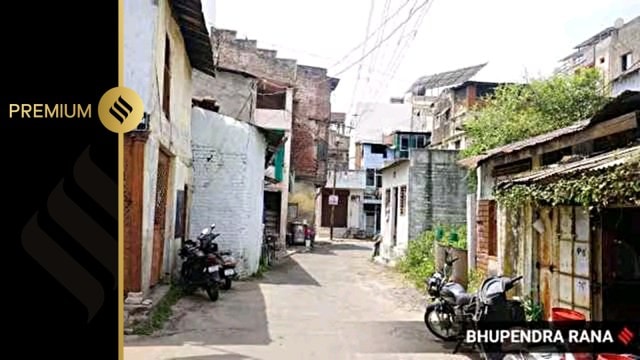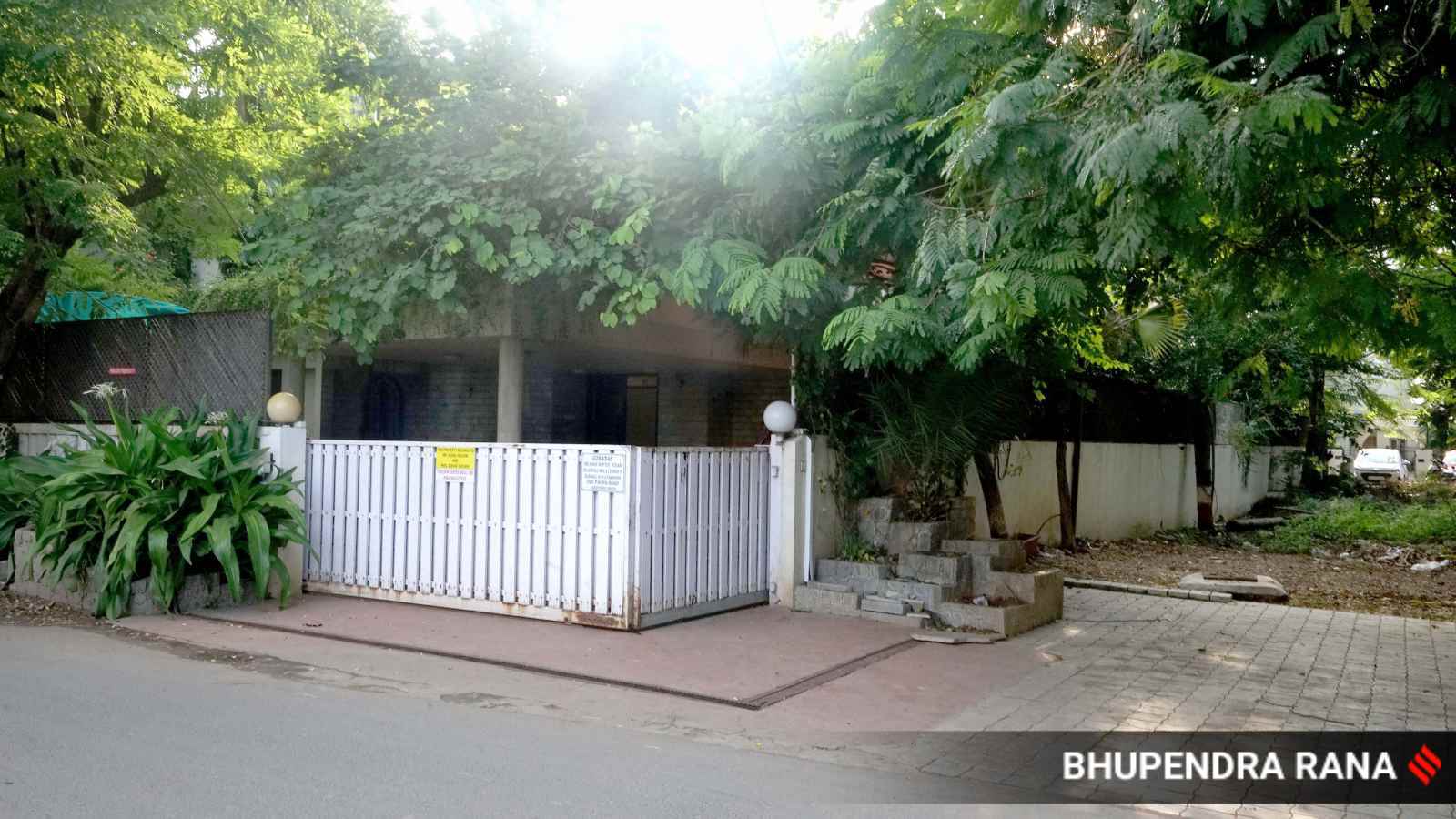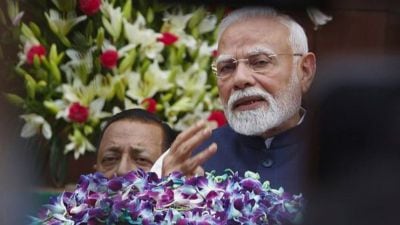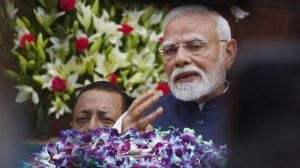Inside Gujarat’s ‘Disturbed Areas’: How the Act shrunk housing options for minorities
While the law is meant to rule out distress sales in communal situations, with neighbours filing petitions, it has often come in the way of regular property sales between Hindus and Muslims. In Vadodara, since 2016, at least five such cases have landed in the High Court
 Chopdar Faliya in the Old City of Vadodara, is one of the many neighbourhoods that come under the Disturbed Areas Act. (Express Photo: Bhupendra Rana)
Chopdar Faliya in the Old City of Vadodara, is one of the many neighbourhoods that come under the Disturbed Areas Act. (Express Photo: Bhupendra Rana)Sitting in his shop in the Chopdar Faliya neighbourhood of old Vadodara, Siraj Pathan, 52, a trader of embroidery materials, recalls how in the 1980s and till the late 1990s, boys in the neighbourhood would play cricket together, have friendly fights but never over their faith.
But things changed after the communal riots that followed the Godhra train burning of February 27, 2002, when “a lot of people from both communities stopped looking each other in the eye. Slowly, our neighbourhood turned into ghettoised lanes.”
What aided this exclusion, he says, was the 1991 Gujarat Prohibition of Transfer of Immovable Property and Provision for Protection of Tenants from Premises in Disturbed Areas Act.
The law, which empowers the administration to declare parts of the territorial jurisdiction as “disturbed” in the context of communal clashes, prohibits the direct sale of property between people of different faiths unless it’s cleared by the collector’s office, who has to certify that the transaction involves free consent. As part of the process, the administration interacts with neighbours to make sure that there is no coercion or threat involved in the sale.
While it’s a measure to rule out distress sales in communal situations, the law has, in a number of instances, come in the way of regular property sales between Hindus and Muslims. In many of these cases, neighbours have objected to the sale, citing a common misconception that the law prohibits the sale of properties from one community to another.
 Chopdar Faliya is under the Wadi police station jurisdiction.
Chopdar Faliya is under the Wadi police station jurisdiction.
When cases land up in court
Several areas in districts such as Vadodara, Ahmedabad, Anand, Amreli, Bhavnagar and Panchmahal in the state have been included under the purview of the Act.
In Vadodara, which continues to witness sporadic communal clashes and where the Act was last extended in September 2019 for five years, the Disturbed Areas Act is in place in 12 of the district’s 20 police stations, of which the ones in the old city areas are more sensitive. Chopdar Faliya is under the Wadi police station jurisdiction.
At least five cases of property sale in Vadodara between communities have landed in the Gujarat High Court since 2016 after neighbours filed petitions objecting to the sale. In at least three of these cases, the court drew a line on third-party interference and gave orders favouring the deal.
The latest instance of the courts upholding property sales, which were held up under the Act, came on August 23 last year in a case involving Dilip Modi and Deepak Modi, who sold their property – a tenement with a shop – in Chopdar Faliya to Onali Ezazuddin Dholkawala and Iqbal Husain Asgar Ali Tinwala.
Two panch witnesses (independent witnesses) to the sale — Farhan Tasaddukhusain Barodawala and Keshavbhai Rana — who had earlier assented to the sale in 2016, moved the court last year seeking a recall of an order passed by the HC in 2020 upholding the sale of the property. The panchas later opposed the sale claiming they were made to sign on a blank proforma and that they were not neighbours of the Modis as was claimed.
On August 23, 2023, the court while imposing a collective cost of Rs 50,000 on the two panch witnesses, observed, “This… is a disturbing factor that a successful purchaser of property in a Disturbed Area is being hounded and thwarted in his attempt to enjoy the fruits of the property which he successfully purchased.”
‘Act has created ghettos’
Advocate Shaukat Indori, who practises in the district court, is a regular at a tea shop in the Panigate area where Hindus and Muslims discuss politics over chai. Indori is currently handling a case of a shop sold by a Hindu to a Muslim in the area where even neighbours have consented, but the sale has not yet been approved by the revenue authority.
“The Act has shrunk the options for Muslim communities to own residential spaces in the city. It has created ghettos and minority alleys in bigger neighbourhoods. As a result, Muslim families are concentrated in the Old City area, which has in recent years seen a spurt in construction – tall buildings, some with 30 flats across five floors, are being built on tiny plots. Many of these are illegal, with no area reserved for parking. So, when a Hindu owner in the old city area puts up his property for sale, he ends up making a fortune if the deal is validated. Many of these properties have been purchased by local developers, who construct tiny apartments for sale. Only those parties with financial means to fight a legal battle approach courts; there are many others who have been in a fix because of the Act”, says Indori.
 In 2019, Geeta Goradia, a business woman from Vadodara, sold her bungalow to Mumbai-based businessman and educationist Faisal Fazlani. Four years later, the Gujarat High Court dismissed her neighbour’s petition objecting to the sale of her house to a Muslim. (Express Photo: Bhupendra Rana)
In 2019, Geeta Goradia, a business woman from Vadodara, sold her bungalow to Mumbai-based businessman and educationist Faisal Fazlani. Four years later, the Gujarat High Court dismissed her neighbour’s petition objecting to the sale of her house to a Muslim. (Express Photo: Bhupendra Rana)
The HC is also hearing a petition filed by a Muslim partnership firm, Orbit Enterprise, challenging the “unconstitutional and illegal” action of the Deputy Collector of Vadodara, of allegedly stopping the sale of flats in a residential scheme to Muslims on the ground that “objections were raised by residents of other residential complexes in the vicinity”. The next hearing in this case is due on February 6, 2024.
Meanwhile, petitions challenging the Disturbed Areas Act and subsequent amendments in 2020 remain pending before the Gujarat HC.
Ten kilometres away, on the Vasna-Tandalja road, Geeta Goradia, a leading business woman from Vadodara, had in 2019 sold her sprawling bungalow to Mumbai-based businessman and educationist Faisal Fazlani. It was only on November 7, 2023, four years later, that the Gujarat High Court dismissed her former neighbour’s petition objecting to the sale of her house to a Muslim.
The HC upheld the sale, ruling that third parties such as neighbours were “not required to be heard” and noted that authorities, while considering transfer of property under the Act, “have to decide if such a sale is a distress sale and not whether it will create any law and order problem”.
Next door to Chopdar Faliya is Fatehpura, where a 51-year-old bank employee has been seeking to sell his house and move out of the locality ever since the communal clash of Ram Navami on April 30. But he is struggling to find buyers for the price he is looking for. “Many sellers have to settle for lower prices even while selling to those within their communities as everyone knows the restriction the Act places while choosing buyers. For those who do not plan to sell their properties, however, the Act gives a sense of security.”
For realtors, the Act usually translates into “additional paperwork”.
Abhijit Bhagwat, CEO of Sunfin Realty and President of Vadodara Realtors Association, says, “The provisions of the Act are such that even two consenting parties belonging to the same faith must get a clearance from the district administration, which means additional paperwork and delay. Many clients are willing to pay a premium to buy homes outside Disturbed Areas as the transactions are easier.”
Vadodara Commissioner of Police Anupamsinh Gahlaut says that the law has helped prevent “distress sale”. “It was observed that in many areas, including Vadodara, communal clashes triggered over petty issues were actually attempts to dislodge communities from neighbourhoods. Over a span of about 25 years, there was a visible demographic change in neighbourhoods belonging to either communities.”
— With inputs from Sohini Ghosh












